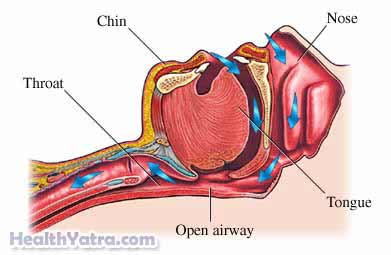Definition
Whooping cough is a bacterial infection of the respiratory tract. The bacteria invade the lining of the respiratory tract and airways. This causes inflammation and increased mucus. It is very contagious. It can be serious.

Causes
Whooping cough is caused by the bacterium Bordetella pertussis. It is spread by:
- Inhaling droplets from the sneeze or cough of a person infected with whooping cough
- Having direct contact with the mucus of a person infected with whooping cough
Risk Factors
Risk factors that increase your chance of getting whooping cough include:
- Not being immunized
- Living in the same house or working in close contact with someone infected with whooping cough
Symptoms
Symptoms usually begin 1-2 weeks (at most, three weeks) after exposure to the bacterium.
Initial symptoms last about 7-14 days. They include:
- Runny nose and congestion
- Sneezing
- Mild fever
- Mild cough
- Watery, red eyes
The second stage of whooping cough is called the paroxysmal stage. This stage usually lasts 1-6 weeks but can last much longer. Symptoms include:
- Severe coughing
- Long episodes of coughing that start suddenly and may end with a forceful inhale or ‘whoop’ (the whoop does not occur in all people)
- In severe cases, coughing may cause a person to have trouble breathing or turn blue from lack of oxygen
- Coughing episodes may result in vomiting
During the final stage, the cough gradually gets better over 2-3 weeks. Episodes of coughing can still occur during this stage.
Complications in infants and young children may include:
- Pneumonia
- Seizures
- Periods of apnea (no breathing)
- Abdominal and inguinal hernias
- Damage to the brain (rare)
- Death (rare)
Complications in teens and adults can include weight loss and accidental urination. Rarely, fainting or rib fractures can occur from severe coughing.
Diagnosis
The doctor will ask about your symptoms and medical history. A physical exam will be done. Tests may include:
- Swab of nose and throat for culture and other tests to detect the bacteria
- Blood tests
Treatment
Treatment may include:
Medication
Antibiotics, such as erythromycin , clarithromycin, or azithromycin are used. They are most effective when started in the early stages.
Treatment of Symptoms
To help reduce vomiting and reduce the chance of dehydration:
- Eat small, frequent meals.
- Drink plenty of fluids. For older children and adults, water, unsweetened fruit juices, and clear soup may be good options.
Hospitalization
This may be necessary for those who develop pneumonia. Patients are usually isolated to prevent spreading the disease to other people.
Prevention
Vaccine
The best way to prevent whooping cough is immunization. All children (with few exceptions) should receive the DTaP vaccine series. This protects against diphtheria,tetanus, and pertussis. Another vaccine called Tdap is routinely given to children aged 11-12 after they have completed the DTaP series of shots. There are also catch-up schedules for children and adults who have not been fully vaccinated.
Preventive Antibiotics
People in close contact with someone infected with whooping cough may be advised to take preventive antibiotics, even if they’ve been vaccinated. This is important in households with members at high risk for severe disease, such as children under one year of age.
